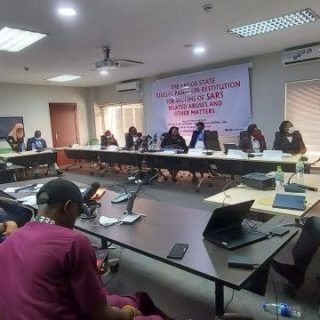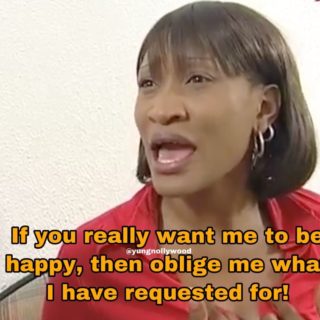Nigeria is tough and the people who refuse to pay up their debt don’t make living here any easier. If you’ve been aired or blocked by someone you lent money to, here’s a guide on how you can legally get your money back.
The first thing you need to know is that if anyone in Nigeria owes you a debt, you have to act fast. If you try to get the money through a law court after six years, the court won’t answer you — and that’s according to Section 21(1) (a) of the Statute of Limitation Law.
Also, when trying to get back your debt, avoid sending any threatening or intimidating messages to your debtor. While we know that being owed can get you very angry, you also don’t want those threats of violence to backfire into a criminal case against you. So please, no violence.
And most importantly, do not involve the police in a debt recovery case in Nigeria as the police are meant to fight criminal issues, not issues between normal people. Involving a lawyer from the start is a better option.
Now, Time To Get Your Money Back
Do you have an agreement in writing with the person you lent money to about the steps you can take to recover your debt if they don’t pay up, like selling a property? If yes, then good for you. You can simply follow the steps in that agreement to recover your debt.
If you don’t, that is still alright. There’s no need to escalate things. You can try sending them a message reminding them of their debt. Sometimes that’s all you need to do.
But if all else fails, here’s how you can “gently” get your money back:
Send The Person A Letter of Reminder:
You can send your debtor a “letter of reminder”. This letter should be written by your lawyer, and it should remind the person owing you that you will take the case to court if they fail to pay up your money.
Try Mediation and Arbitration:
To get back your money, you can involve third parties — if the other party is willing to discuss it with you, of course. In mediation, a third party can help you and your debtor reach an amicable settlement.
In arbitration, you and the other person must follow the final agreement reached by the arbitrator, and the decision can be enforced in court because it is legal. But there must have been an agreement that you and your debtor will use arbitration to settle matters in the original loan agreement.
Write The Person A “Letter of Demand”:
If you are getting uneasy and your debtor is still unwilling to pay up, then you can employ the services of a lawyer to draw up a “letter of demand”, warning the person of the things that will happen if they do not pay back your debt within a period.
The letter of demand usually confirms the exact money you are owed, a clear time when the debt should be paid back and the legal consequences of failure to pay back the debt.
A letter of demand usually serves as a good notice to the debtor before you take matters to court.
Try Taking Legal Action –
Finally, in the case where the debtor has failed to pay up even if you have sent them letters and tried to be reasonable with them, then you should take the matter to court.
The court will enforce a decision for your debtor to pay you back your money, after hearing the facts of the case.
The appropriate court to take a case of debt recovery depends on the amount you are owed. But you can recover your debt in a Magistrate Court, State High Court or Federal High Court.
By involving a lawyer early on, following the relevant procedures and eventually taking the matter to court, you can recover all the debt that is owed to you without breaking a sweat, literally.




